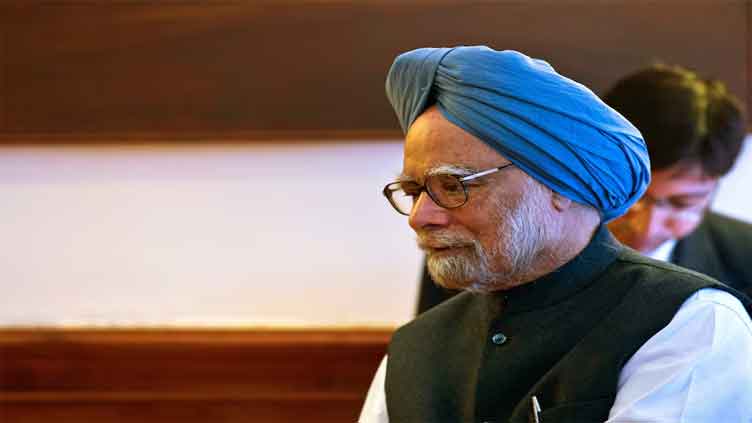Former Indian PM Manmohan Singh dies aged 92

World
Singh is credited with steering India to unprecedented economic growth
NEW DELHI (Reuters) - Described as a "reluctant king" in his first stint as prime minister, the soft-spoken Manmohan Singh, who died on Thursday at the age of 92, was arguably one of India's most successful leaders.
Singh, the first Sikh to lead his nation, was prime minister from 2004 to 2014, serving a rare two terms. He had been undergoing care for age-related medical conditions.
Singh is credited with steering India to unprecedented economic growth and lifting hundreds of millions out of dire poverty.
"India mourns the loss of one of its most distinguished leaders," said Prime Minister Narendra Modi.
Born into a poor family in a part of British-ruled India now in Pakistan, Manmohan Singh studied by candlelight to win a place at Cambridge University before heading to Oxford, earning a doctorate with a thesis on the role of exports and free trade in India's economy.
He became a respected economist, then India's central bank governor and a government adviser, but had no apparent plans for a political career when he was suddenly tapped to become finance minister in 1991.
During that tenure to 1996, Singh was the architect of reforms that saved India's economy from a severe balance of payments crisis and promoted deregulation, as well as other measures that opened an insular country to the world.
Famously quoting Victor Hugo in his first budget speech, he said: "No power on earth can stop an idea whose time has come," before adding: "The emergence of India as a major economic power in the world happens to be one such idea."
Singh's ascension to prime minister in 2004 was even more unexpected.
He was asked to take on the job by Sonia Gandhi, who had led the centre-left Congress Party to a surprise victory. Italian by birth, she feared her ancestry would be used by Hindu-nationalist opponents to attack the government if she were to lead the country.
Riding an unprecedented period of economic growth, Singh's government shared the spoils of India's newfound wealth, introducing welfare schemes such as a jobs programme for the rural poor.


